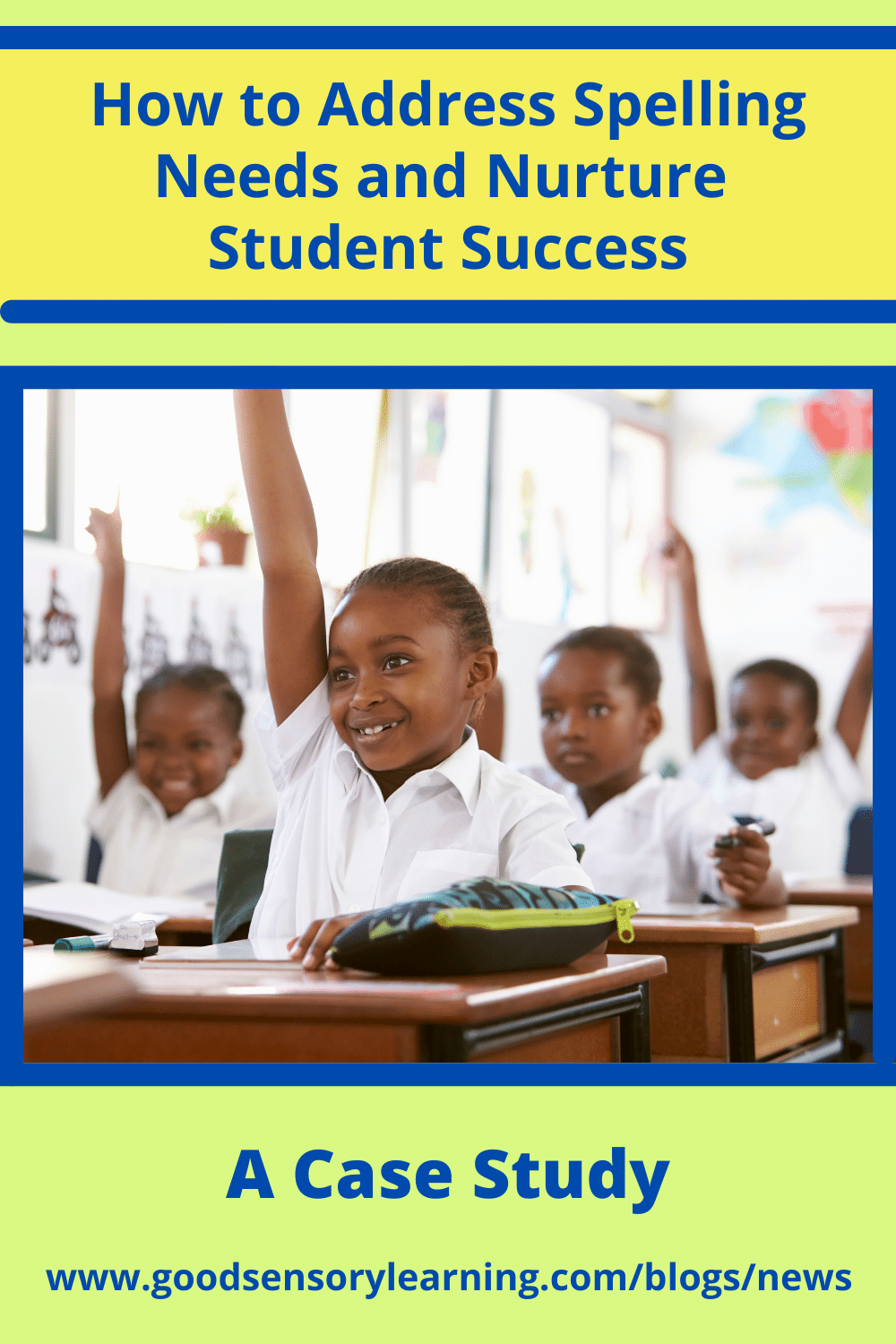How to Address Spelling Needs and Nurture Student Success
Posted by Erica Warren on
This week, I am thrilled to share a case study of a fabulous teacher named Kim from Cape Town in South Africa. Kim teaches a 3rd-grade class at a special needs school. The children range from 10 to 12 years old, and most are bused in daily from very disadvantaged areas all over the peninsula. Kim reported, "I was so thrilled to have stumbled across your website when I was drowning in a sea of unrecognizable words and paragraphs which were proudly presented to me by 8 out of my 16 pupils." Kim knew they were capable, "as most of them could do math with the greatest of ease. So what was this?"

How Could Kim Meet the Diverse Needs of Her Students?
Kim signed up for my course: Spelling Instruction: Assessment and Focused Remedial Approach. She shared, "After studying your course, I realized that my students' brains were wired differently as far as language processing." Kim learned that her struggling students had different cognitive-based weaknesses that were causing the problems, and that the secret to success was accommodating specific difficulties under the following headings:
1) Auditory Processing: Kim reported, "Some had problems with auditory processing and needed specific interventions" that are covered in the course. Here is one of Kim's new strategies: "I have had such fun grouping words into similar sounds and making up rhymes to help the children remember these groupings. To make it multisensory, they all say it, clap it, or drum on the desk, and write it. At this stage, we have:
2) Visual Processing: Kim suggested, "The children who struggle with visual processing need interventions that help with ordering letters correctly, practicing pattern formation, and discriminating the direction of letters." The course goes into great detail with an assessment and remedial suggestions, but here are a few recommended visual processing tools.
3) Auditory and Visual Processing: Kim indicated, "Then there are those who seem to have both auditory and visual processing problems." Again, the course offers an assessment tool as well as multisensory remedial recommendations. Here are some fun auditory processing resources.
This course is updated as needed and offers lifetime access to the content. If you would like to learn more, click on the image below.
Cheers, Erica
- The EAR words such as near, fear, and rear. The rhyme goes like this:
"There are some words that all have an EAR
They are near and fear and rear and dear."
- The HEN words (then and when)
- The OLD words (gold, cold, sold, and fold)
2) Visual Processing: Kim suggested, "The children who struggle with visual processing need interventions that help with ordering letters correctly, practicing pattern formation, and discriminating the direction of letters." The course goes into great detail with an assessment and remedial suggestions, but here are a few recommended visual processing tools.
How is This New Form of Intervention Working in the Class?
Kim shared, "The wonderful thing is that ALL the children are benefiting from the multisensory lessons. There is a more relaxed vibe in the classroom as lessons have become more playful and fun. This has been most helpful with my stressed learners." In addition, Kim indicated, "the children with ADHD have become more engaged in the learning process as they love clapping, drumming, and doing dance moves when we spell aloud.
Kim Took my Suggestions to Heart
- "I have also incorporated many of your insights, such as writing on Flour Trays, using magnetic letters, and utilizing bottle tops with letters on them."
- "For the first time, I have dared to do literacy stations with my class. Because they are so busy doing stuff, it is working and beneficial - as opposed to a chaotic nightmare."
- "I have also tried to implement your visualization techniques," so students can learn how to use their mind's eye to assist with learning and recall.
- "Another thing, I have noticed is that they excitedly recognize word parts such as EAR and OLD when they read individually for me. The sequential teaching of the spelling rules and application in their creative writing has also improved."
How Can I Learn More About This Spelling Course?
Spelling Instruction: Assessment and Remedial Approach is a comprehensive course and assessment that will teach you all you need to know to meet the needs of struggling spellers. This includes about 50 minutes of multisensory video-based instruction that you can refer back to at any time, a comprehensive spelling assessment with remedial recommendations, and a companion journal that is packed with useful information, such as a term dictionary, a comprehensive list of Orton-Gillingham-based reading programs, and assistive technology ideas.
This course is updated as needed and offers lifetime access to the content. If you would like to learn more, click on the image below.
It was a true pleasure to feature Kim's case study, and it is wonderful to learn about how she is helping all of her students to succeed! I hope you enjoyed this post.
Cheers, Erica
Dr. Erica Warren is the author, illustrator, and publisher of multisensory educational materials at Good Sensory Learning. She is also the director of Learning to Learn and Learning Specialist Courses.
- Blog: https://goodsensorylearning.com/blogs/news
- YouTube Channel: https://www.youtube.com/user/warrenerica1
- Executive Function Podcast: https://goodsensorylearning.com/pages/the-personal-brain-trainer-podcast-with-dr-erica-warren
- Store: http://www.Goodsensorylearning.com/
- Courses: http://www.learningspecialistcourses.com/
- Newsletter Sign-up: https://good-sensory-learning.kit.com/drericawarren


